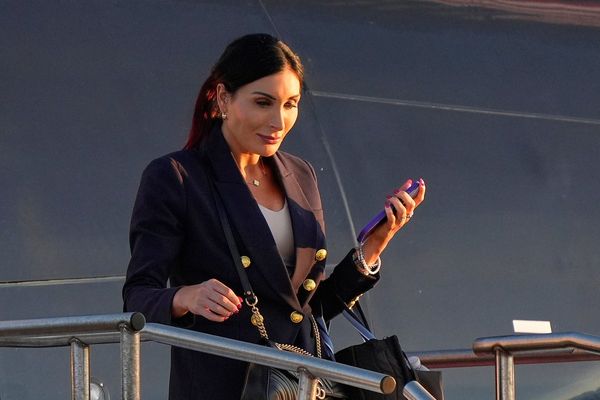
The EU will be unable to claw back any of the €150m (£125m) paid to Tunisia despite the money being increasingly linked to human rights violations, including allegations that sums went to security forces who raped migrant women.
The European Commission paid the amount to the Tunis government in a controversial migration and development deal, despite concerns that the north African state was increasingly authoritarian and its police largely operated with impunity.
A Guardian investigation last month revealed allegations of myriad abuses by EU-funded security forces in Tunisia, including widespread sexual violence against migrants.
Now it has emerged that there is no system in place to retrieve the funds even if the money is connected to serious human rights violations.
European funding rules dictate that the money should be spent in a way that respects fundamental rights, with stricter requirements introduced in 2021 to ensure any spending does not contravene human rights.
However, a human rights impact assessment was not carried out before the EU-Tunisia deal was announced last year. The money was paid to Tunis in March.
Catherine Woollard, director of the European Council on Refugees and Exiles, said human rights abuses were inevitable with a migration deal that aims to stop people from reaching Europe by boat from north Africa.
She said: “Human rights violations are a feature, not a bug, in agreements with repressive governments. They are about outsourcing not just people but also abusive actions when Europe doesn’t want to get its hands dirty.”
Tunisia’s controversial president, Kais Saied, secured a second five-year term this week with an election win condemned by rights groups and which further cemented the country’s slide from birthplace of the Arab spring into an autocracy.
Victory for Saied, who has a record of racist tirades against migrants from sub-Saharan Africa, has prompted concerns that it may precipitate fresh abuses by his security forces.
Brussels’ deal with Tunisia, and its compatibility with the bloc’s human rights obligations, is now the focus of an investigation by the EU ombudsman. Emily O’Reilly’s report, due in the coming weeks, is likely to question the accord’s integrity and whether measures are in place to suspend EU funding if human rights violations are identified.
O’Reilly said it had been “really tricky” to follow the funding as part of the EU-Tunisia deal.
She said: “If you discover that equipment that you have funded to Tunisia is being used in a way that damages the fundamental rights of migrants, are you going to get the money back? How are you going to get the money back?”
A commission spokesperson said the €150m was paid to Tunis after “mutually agreed conditions” had been met.
In a further development that underlines growing unease over the deal, the international criminal court (ICC) may launch an investigation into the abuse of sub-Saharan migrants by the Tunisian authorities.
Such a move would be acutely embarrassing for the commission and modelled on a similar inquiry into the mistreatment of migrants in neighbouring Libya.
The British barrister Rodney Dixon KC filed a submission to the ICC regarding abuse of migrants five days after the Guardian’s allegations that members of the Tunisian national guard were raping women and beating children.
Dixon said: “We are hoping to work with the [ICC’s] office of the prosecutor in the coming months to ensure this matter is investigated given the seriousness of the allegations. There is a clear legal basis to proceed.”
Even before the latest scandal involving the Tunisian security forces, EU officials were already uneasy about backing a migration deal that has become a template for agreements with other states such as Egypt and Mauritania.
An internal document from the EU’s diplomatic service leaked last month exposed concern that the EU’s credibility could suffer because of its attempt to tackle migration through payments to repressive regimes.
A commission spokesperson said: “The respect for human rights and human dignity of all migrants, refugees and asylum seekers are fundamental principles of migration management, in line with obligations under international law.”
They added that human rights obligations had been raised with the Tunisian authorities as part of the deal and that significant efforts and schemes to monitor EU funded programmes were in place “including [monitoring] the situation on human rights”.
“Efforts are ongoing in Tunisia to strengthen existing monitoring mechanisms. The commission remains engaged to improve the situation on the ground.”







